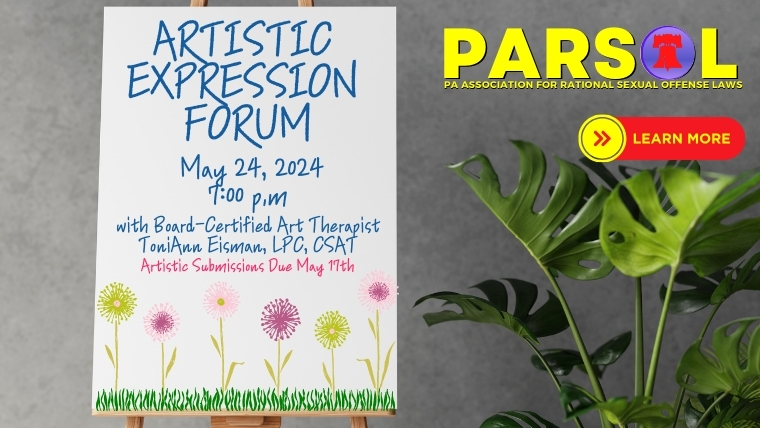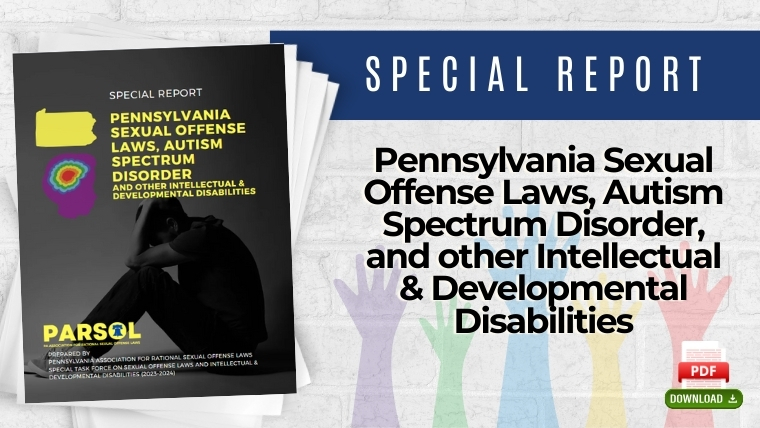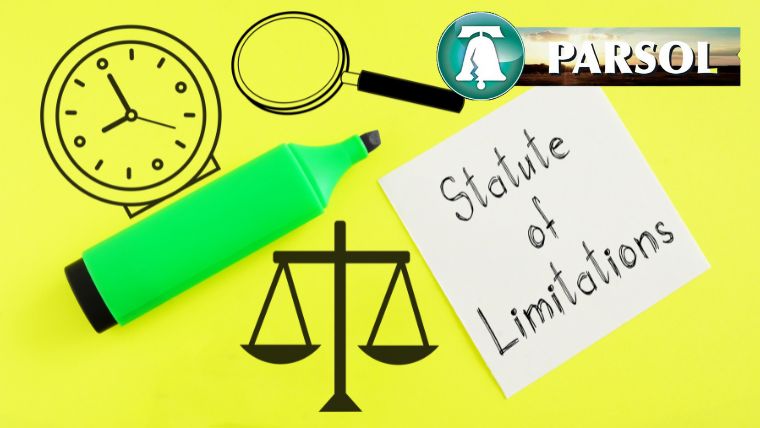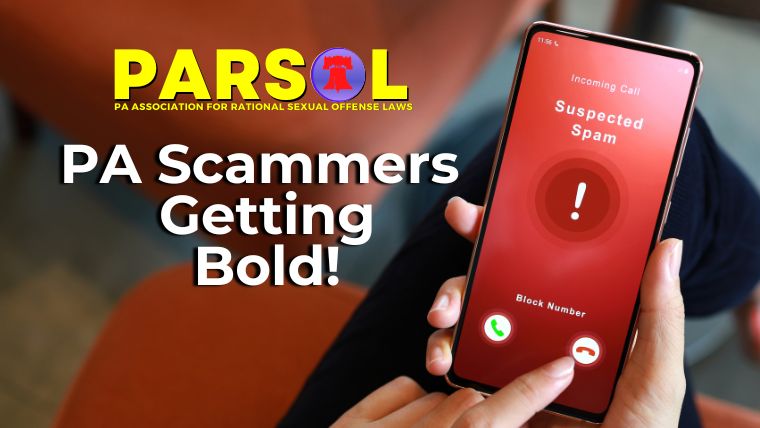Warm greetings from the PARSOL Board of Directors. Thank you for having a look at our Summer 2021 Newsletter.
Since our last newsletter in February, we have been busy advocating for the dignity of Pennsylvanians who are forced to register as well as educating policy makers on the ways that we can reduce sexual offenses. We have also kept a close eye on the legal challenges to PA’s registry that are making their way through the courts. On the national stage, there have been several important developments which we would like to share with you.
On to the news:
American Law Institute: abolish public registries
Influential nationwide body votes to make significant reform of sex offense registries part of their official recommendation.
The American Law Institute (ALI) voted in mid-June to include in the Model Penal Code the recommendation that all sex offense registries be made available exclusively to law enforcement agencies.
This group of legal scholars, judges, and attorneys is the leading and most respected source in the country for guidance on improvements to the law.
Specifically, their recommendations include:
- Only sexual assault offenses should require registration.
- Only law enforcement should have access to the registry.
No public websites or community notifications.
- Maximum term is 15 years.
Removal occurs after time spent offense-free
- Failure to Register should be reclassified as a misdemeanor.
Failure to register should not be the basis for parole/probation revocation.
- Location monitoring, residency restrictions, and internet access restrictions should not be an option for judges except on a case-by-case basis requiring special circumstances.
(To be clear, these are the recommendations of the American Law Institute and the above points are not policies that have been adopted by any states as of this writing.)
The ALI’s Model Penal Code has historically been relied on by states around the nation. However, as the suggestions to make fundamental changes to sex offense registries is a new development, it is too early to say whether or not the ALI’s recommendations will be taken under consideration by state legislatures.
While no statements have been made by state governments, national groups have made their feelings known. The Office of Sex Offender Monitoring, Apprehending, Registering, and Tracking Agency (SMART), a division of the US Department of Justice, urged the ALI to vote against the above recommendations because of the risks posed to the public. A coalition of groups from around the nation, including the Human Rights Defense Center, also urged the ALI to vote against the changes to the Model Penal Code, but for a very different reason: the proposals do not go far enough. This coalition argues that any registry, even one accessible only to law enforcement, is an assault on people’s rights and dignity and does not help to keep communities safer.
Time will tell whether or not state and federal agencies are interested in best practices and a rational approach to sexual offense laws, or if the recommendations of this esteemed body will be ignored.
Recent Court Decisions
PA Supreme Court: SORNA Creates an Irrebuttable Presumption as Applied; Torsilieri PA Constitutional Challenge Marches Onward; South Carolina Rules Lifetime Registry Unconstitutional
Some significant developments have come out of the Supreme Court of PA (SCOPA). Last month, the Order of the Carbon County Court of Common Pleas that removed Defendant Gruver from the registry in Commonwealth v. Gruver was affirmed by SCOPA.
Mr. Gruver argued, “The Sex Offender Registration and Notification Act’s (SORNA) registration requirements, premised upon the presumption that all sexual offenders pose a risk of recidivating, with no opportunity to rebut the presumption, as applied to Defendant, infringes upon the fundamental right to reputation contained in the Pennsylvania Constitution in violation of state constitutional standards of due process.” Mr. Gruver added, “SORNA’s registration requirements premised solely upon Defendant’s conviction of a sexual offense, as applied to Defendant – who was not designated a Sexually Violent Predator (SVP) – violates Defendant’s due process rights by relying upon an irrebuttable presumption which is not universally true”(emphasis added).
An analysis under the irrebuttable presumption doctrine requires consideration of: (1) whether the affected individual has asserted an interest protected by the due process clause that is encroached by an irrebuttable presumption; (2) whether the presumption is not universally true, and (3) whether a reasonable alternative means exists for ascertaining the presumed fact.
The Carbon County Court of Common Pleas affirmed the first part of the analysis was met, “SORNA’s registration requirements implicate an interest in reputation, a fundamental right under the Pennsylvania Constitution which applies to all convicted sexual offenders.” The fundamental right to reputation can be found in PA’s Constitution Article 1 Section 1 which states, “[a]ll men are born equally free and independent, and have certain inherent and indefeasible rights, among which are those of… possessing and protecting property and reputation.”
The Court agreed the second point was made, “[i]t is precisely because of SORNA’s breadth of application to all sexual offenders – regardless of age and regardless of gender or other limiting factors – and the knowledge that while all sexual offenders as a class may pose a high risk of reoffense relative to the general population a significant number are unlikely to reoffend, coupled with the punitive effect of registration…that procedural due process requires a separate assessment of an individual’s likelihood to reoffend before that person can be deprived of a fundamental right having punitive consequences.”
It is very clear that a reasonable alternative means exists for ascertaining the presumed fact: “since SORNA provides for individualized assessment of all sexual offenders convicted of a Tier I, II or III offense by the State Sexual Offenders Assessment Board for designation of SVPs, 42 Pa.C.S.A. §9799.24, a similar process could be utilized to assess which adult sexual offenders are at high risk to recidivate.”
Update on the Evidentiary Hearing where the Commonwealth must prove that all persons who have offended sexually pose a high risk of re-offending:
In Commonwealth v. Torsilieri, an evidentiary hearing date of March 17 was postponed. The Commonwealth filed a Motion to Stay Proceedings as a last ditch effort in not having to make their arguments before the Court. Judge Royer denied the motion, thus moving the Court of Common Pleas case forward.
The best chance at bringing fundamental change to PA’s Sex Offender Registration and Notification Act (SORNA), made law in Act 29 of 2018, rests with Commonwealth v. Torsilieri.
The registrant’s lawyer, Aaron Marcus of the Philadelphia Defender’s Association, argued before the PA Supreme Court in 2019 that Act 29’s assumption that all people on the sex offender registry are at high-risk of offending facially violates the irrebutable presumption principle. Further, he asserts that being listed on a publicly accessible registry violates the Right to Reputation under the Constitution of Pennsylvania. Torsilieri was not found to not be a sexually violent predator; therefore, his position is that he should not be on a publicly accessible registry that declares everyone on it poses a high-risk of re-offending.
In an unexpected 2020 decision, SCOPA remanded the case back to the Chester Co. Court of Common Pleas for an evidentiary hearing. This will provide the Commonwealth with an opportunity to convince the Court that Act 29’s assertion that all people on the registry are high risk is founded on evidence.
As of this printing, no date has been set for the evidentiary hearing.
In national legal news, The South Carolina Supreme Court ruled in Dennis J. Powell, Jr. v. Mark Keel, Chief, State Law Enforcement Division, and The State of South Carolina that lifetime registration “without a chance to see if they are actually high risk to re-offend” was unconstitutional. The Court wrote, “The lifetime inclusion of individuals who have a low risk of re-offending renders the registry over-inclusive and dilutes its utility by creating an ever-growing list of registrants that is less effective at protecting the public and meeting the needs of law enforcement… Moreover, there is no evidence [that]… all sex offenders generally pose a high risk of re-offending.”
While PARSOL does not give legal advice, you can send an email to josiah@parsol.org with questions about these and other cases working their way through the Courts.
Remember, Our Legal Team has created a handy resource that collects PA Supreme Court Cases concerning sexual offense challenges. This spreadsheet can be found on our website at https://parsol.org/legal-cases/ .
From the Capitol:
Lawmaker outreach and education continue.
Since our last newsletter, our citizen lobbyist has held four meetings with PA Senate staffers and one meeting with a Member of the PA House.
PARSOL’s goals when meeting with legislators is education and relationship building. We introduce our organization and we share the idea that registry reform goes hand in hand with what these lawmakers wish to see: a reduction in sexual offenses. From this point of agreement, that we are committed to less people being hurt by sexual crimes, whether online or in person, we can begin to communicate about what is working and what isn’t.
Public sex offense registries are not working. We had a conversation with one mother who works in the Capitol who told us that the registry is so crowded and covers so many offenses, that it is useless to her; she doesn’t know who might be high risk and who has reached the point where they are a minimal risk.
We talk a fair amount about prevention. We need to treat this problem, of online and hands-on sexual abuse, as a public health issue. We point to the example of the AIDS crisis in the 1990’s and the successes we had there: we educated people about what HIV is, what the risk factors are, and how we can best recognize and minimize risk. We implemented programs and resources to help those who had become ill and give them the best chance at living their best lives. Compare this to how we handle sexual abuse: it is largely ignored until a terrible crime is committed, we spend very little time talking about warning signs or proper sexual behavior, and we offer virtually nothing in the way of resources or help for those who are struggling with deviant sexual thoughts. Only after the crime is committed and victims are created do we take action.
If the goal of our elected officials is to keep our communities safe, they are failing by putting all of their hopes and resources behind an ineffective and constitutionally unsound public registry. Promotion of greater penalties and longer sentences (downstream strategies) will not address the upstream causes of sexual abuse..
The calls for reform of public sex offense registries have never been louder, and it is key that we take advantage of this momentum. Public safety demands that we not remain silent.
For more info on lobbying and legislation, feel free to send an email to randall@parsol.org . We also have legislative resources on our website www.parsol.org/ including our new Legislative Tracker spreadsheet.
Board Members featured on National Advocacy Call
Livestreamed event highlights successful re-entry and advocacy strategies
On June 19, 2021, NARSOL hosted Building Your Advocacy Toolkit live over Crowdcast. This outstanding streaming event featured reentry advocates and lawmakers speaking on legislation, lobbying, the reentry process, and how to enhance your own storytelling skills. Two PARSOL Board member were guest panelists and one served as a Moderator.
This event will be posted on the NARSOL website later this summer as a free resource.
Stay tuned to NARSOL and PARSOL for more events like this one.
Volunteer and Organization Outreach
In recent months, we have been more aggressive in our outreach efforts and have identified several people who are interested in getting involved. These new volunteers are helping with our community support, legal research, letter writing, and outreach to prisoners.
In our ongoing efforts to network with other organizations around PA, we have had some positive talks with the PA Prison Society this year. Be on the look out for their upcoming Graterfriends newsletter where we will have a short introduction to those of us who are serving sentences.
If you or someone you know would like to support PARSOL or get involved, please see our Volunteer page at https://secure.parsol.org/volunteer/ . You can also give us a call at 717 820 2237 or send us a letter at P.O. Box 399 New Freedom, PA 17349.
Fearless Groups Continue Online
Each month, live online or telephone support is available to those affected by PA’s registry.
Join us on the second Saturday of every month from 4 – 5:30PM as PARSOL hosts a free video / telephone meeting open to all residents of PA who are affected by the public registry. This includes registrants themselves, their family members, and their friends. We aim to create a safe environment free from the influence of law enforcement or treatment providers.
To take part in this one-of-a-kind meeting of people “who get it”, you can either send an email to tammy@parsol.org or call 717 820 2237 .
Our next meeting is scheduled for July 10th, 2021 at 4PM. Tell a friend, or come to the meeting and make one!
Misc. Updates
- PARSOL has established ourselves as a 501c3. This will make donations easier for those who wish to have a tax write-off.
Please consider securely donating either at https://secure.parsol.org/donate/ or at our physical mailing address, found below.
- Our Share Your Story section has been updated.
If you have a loved one who has been negatively impacted by PA’s registry, please visit our site and share your story. Your testimony will help us educate people of the collateral consequences of SORNA.
- Our brochures have been updated for 2021. Please contact us if you’d like copies of any of the following brochures:
Intro to PARSOL / General Info / Prevention
Legal Issues brochue / History or Megan’s Law & SORNA
Fact Card debunking myths on the registry and public safety.
PA SORNA Subchapter H brochure: What you need to know if your crime was committed after 12/20/2012
PA SORNA Subchapter I brochure: What you need to know if your crime was committed before 12/21/2012
If you know someone who is serving a sentence, please send them a copy of this newsletter.
If you are incarcerated and there is content that you would like to see in these newsletters or online, please reach out and let us know. You are not forgotten.
Be sure to follow PARSOL on social media and help us spread the word. You can find us at PARSOL on Facebook, @PARSOL7 on Twitter, and PA Association for Rational Sexual Offense Laws on YouTube




